Arranged Marriage: Exploring the Pros and Cons of Traditional Matchmaking
By Peter Vanderbuild
January 10, 2024 • Fact checked by Dumb Little Man
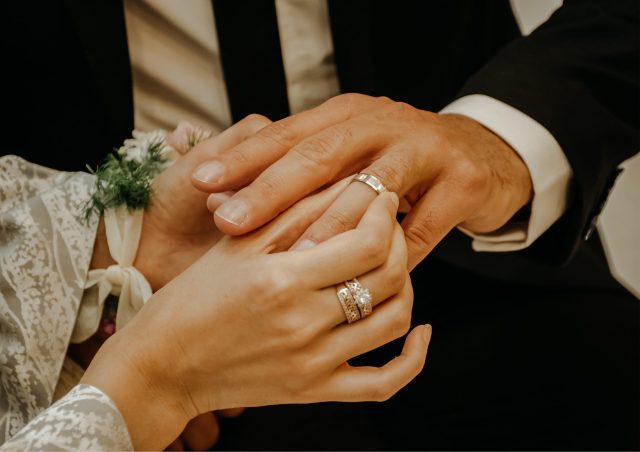
In the tapestry of human society, arranged marriages hold a distinctive pattern, woven through the threads of time and across various cultures. Historically, arranged marriages have been a cornerstone of familial and societal alliances, transcending beyond the bond between two individuals to become a broader union of two families, tribes, or even kingdoms.
The origin of arranged marriages is difficult to pinpoint, given its widespread prevalence across cultures and eras. Ancient societies, including those of Greeks and Romans, engaged in this practice, often to secure alliances and ensure the continuation of prestigious bloodlines.
In medieval Europe, arranged marriages were a staple among the nobility. But perhaps, it's most commonly associated with Asian cultures, particularly those of India, China, and Japan, where it continues to be prevalent to this day.
Arranged marriages aren't a monolith, and their manifestation varies greatly depending on geographical and cultural contexts. In some regions, they involve a matchmaker or a respected elder making the selection, while in others, parents or relatives choose the partner.
Cultural norms, religious beliefs, and social economics often influence these arrangements, shaping the perception and practice of arranged marriages.
In this article, we will delve into the intricacies of arranged marriages. We'll start by understanding what arranged marriages entail and the processes behind them, highlighting how they contrast with other forms of marital unions such as love marriages.
Next, we'll explore both the benefits – like compatibility considerations, reduced individual pressure, and strong family support – and challenges – such as the lack of pre-marital emotional connection, constraints on personal freedom, and societal pressure and expectations.
Subsequently, we will draw comparisons with love marriages, citing statistics, trends, and real-life case studies. Finally, we'll draw conclusions on how arranged marriages can balance tradition and modernity, and summarize the insights from our discussion.
Understanding Arranged Marriages
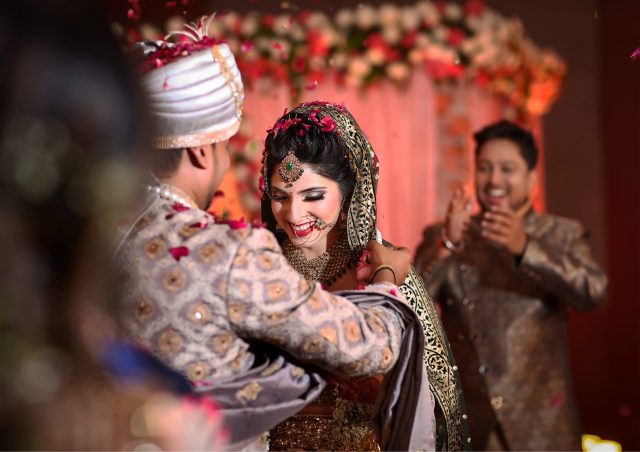
An arranged marriage is a type of marital union where the bride and groom are selected by individuals other than the couple themselves, often by the parents, matchmakers, or other family members.
The premise of this practice is that these decision-makers, with their life experience and understanding of the societal framework, are better equipped to evaluate the compatibility of potential partners.
The Process of Arranged Marriages
The process of arranged marriages can vary widely across different cultures and communities, but there are some common steps. First, potential matches are identified based on various criteria like age, social status, religious beliefs, and economic standing.
Once a potential match is found, families engage in background checks, which may involve evaluating the other family's reputation, the potential partner's character, and financial stability.
This step is often followed by the families meeting, and if they agree, the prospective couple is introduced. The couple might be given time to interact and understand each other before a formal engagement and subsequent marriage.
Comparison with Love Marriages
Comparatively, love marriages, another form of marital union, largely differ from arranged marriages. In love marriages, individuals find their partners based on mutual attraction, compatibility discovered through dating or friendship, and personal feelings.
The process is led by the individuals who plan to marry rather than their families, with the focus placed primarily on emotional connection rather than familial or social compatibility. In love marriages, families get involved later, typically after the couple has decided to marry.
Arranged Marriages and Love Marriages: Different Approaches
While both love and arranged marriages have their own merits and drawbacks, it's essential to understand that they represent different cultural views on marriage and the family's role in the choice of a life partner.
Neither is inherently superior or inferior to the other, but they do offer different approaches to forming one of life's most significant relationships.
RECOMMENDED DATING SITE | REVIEW | VISIT |
|---|---|---|
 | Top dating site with over 16 million active members. Free to Try! |  |
Benefits of Arranged Marriages
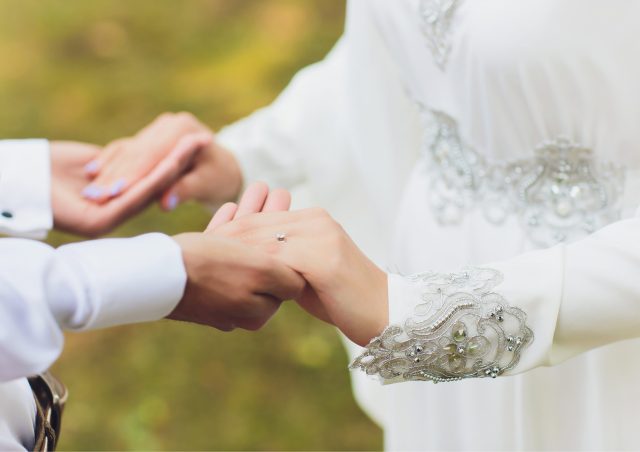
Despite its detractors, arranged marriages have stood the test of time across various cultures primarily due to the benefits they potentially offer. While these benefits can vary depending on the individual circumstances and cultural nuances, three commonly perceived advantages of arranged marriages include ensuring compatibility, reducing decision-making pressure, and offering strong family support.
Ensuring Compatibility
In arranged marriages, families and matchmakers play a pivotal role in assessing compatibility. Rather than relying solely on physical attraction or passionate love, these marriages often take a more pragmatic approach.
Factors such as shared values, socioeconomic background, religion, education, and even astrology in some cultures are meticulously evaluated. This holistic approach goes beyond the immediate romantic attraction to focus on long-term compatibility aspects that are critical for a successful marriage.
The result of this comprehensive compatibility check is that it could provide a solid foundation for a lasting marriage. Ensuring that the couple shares similar life values, expectations, and social standing from the outset, can help reduce potential conflict and enhance harmony in the long run.
Reducing Decision-Making Pressure
Choosing a life partner is a monumental decision, and the weight of this choice can often induce anxiety and stress. Arranged marriages, in this context, offer a significant advantage by sharing the decision-making burden with family members.
Experienced loved ones vet and approve the match, which can instill confidence in the relationship, and alleviate some of the pressures associated with such a significant choice. This collective involvement often leads to a positive start for the couple.
Offering Strong Family Support
One of the inherent strengths of arranged marriages lies in the integral role played by the extended family. Given their involvement from the start, families in such setups tend to invest more in the relationship's success.
They provide emotional, financial, and practical support, creating a robust support system. This familial backing can be invaluable in helping the couple navigate the initial challenges of marriage, and over time, contribute to a successful and enduring marital journey.
However, it's crucial to note that while these benefits can indeed contribute to the success of an arranged marriage, they do not guarantee it. The individual commitment, mutual respect, and efforts of the couple remain vital for any marriage's success, whether arranged or not.
Challenges of Arranged Marriages

While arranged marriages offer certain benefits, it's also important to consider the potential challenges that accompany this matrimonial practice. The absence of a pre-marital emotional connection, potential limitations on personal freedom and individual choice, and societal and familial pressures are some key concerns that often arise in the context of arranged marriages.
Absence of Pre-Marital Emotional Connection
In arranged marriages, one of the significant challenges is the potential lack of deep emotional bonding before the marriage. While families might ensure compatibility on various fronts, emotional compatibility can't be guaranteed.
In many instances, the couple only gets a limited time to interact before their marriage, which might not be sufficient to develop a strong emotional connection.
This lack of a profound emotional bond before the wedding can introduce uncertainties and fears. Unlike love marriages, where emotional compatibility and romantic love usually precede the commitment, in arranged marriages, these feelings might need to develop after the wedding. Navigating this transition can pose challenges, particularly in the early stages of marriage.
Freedom and Individual Choice
Another critical concern in arranged marriages is the potential compromise on personal freedom and individual choice. Although modern arranged marriages increasingly involve consent and choices for the prospective bride and groom, the influence of the family in the decision can be significant.
In cases where individuals feel they have to compromise on their desires or expectations, this can impact marital satisfaction.
While the family's involvement can alleviate decision-making pressure, it can also create a sense of obligation to accept the chosen match, which might not align perfectly with the individual's preference. Therefore, balancing familial input with personal choice is a delicate task in arranged marriages.
Pressure and Expectations
Arranged marriages often come with societal and familial pressure, which can affect the relationship's dynamics. Families and society might impose certain expectations on the couple, such as the urgency to start a family or adhere to traditional roles.
Additionally, there's often immense pressure to make the marriage work for the sake of family honor and societal acceptance.
These expectations can strain the couple's relationship, potentially hindering open communication, creating emotional stress, and limiting the couple's ability to address and resolve issues effectively.
This underscores the importance of developing strong communication and problem-solving skills, irrespective of the type of marriage.
In essence, while arranged marriages come with their unique set of challenges, the success of any marriage ultimately depends on the couple's mutual understanding, effort, respect, and commitment to each other and their relationship.
It's about transforming these challenges into opportunities for growth, understanding, and deepening of the marital bond.
Statistics and Trends
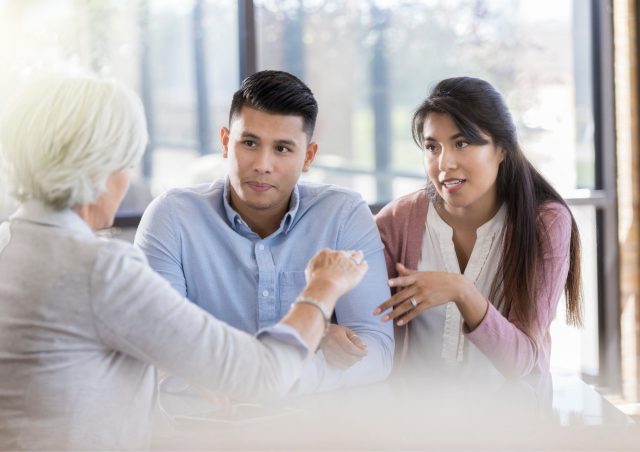
When comparing arranged marriages with love marriages, it is often intriguing to look at statistical data. However, quantifying the success of a marriage is complex as it involves various subjective factors like personal happiness, satisfaction, and relationship quality.
Still, several studies suggest that arranged marriages have comparable, if not higher, stability rates than love marriages.
A study published in the journal ‘Psychology Today' found that while love marriages start with higher happiness levels, the happiness gap between love and arranged marriages tends to diminish over time.
Further, some global statistics indicate a lower divorce rate in cultures where arranged marriages are prevalent, although this could also be influenced by societal norms against divorce.
Meanwhile, the practice of arranged marriages has seen several changes and adaptations in response to modern societal values. Many families have moved from traditional arranged marriages to ‘assisted' or ‘semi-arranged' marriages, where the prospective bride and groom have significant input in the decision-making process and are given adequate time to know each other before the commitment.
Case Studies
To better understand the dynamics of arranged marriages, let's consider some real-life examples:
Ravi and Sunita (names changed for privacy), an Indian couple, had an arranged marriage. They barely knew each other before their wedding but worked to develop understanding and love post-marriage.
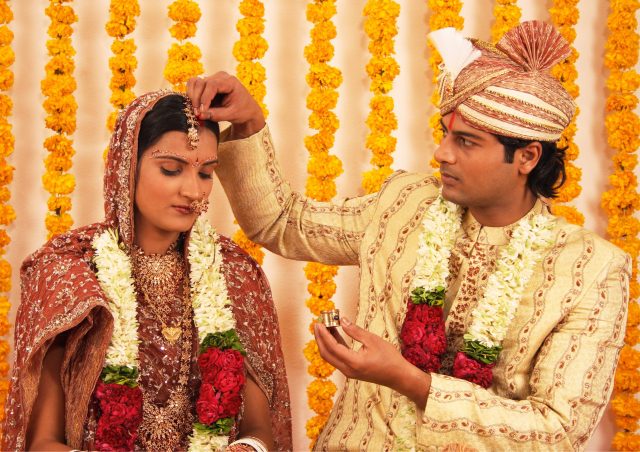
Today, after 30 years, they share a strong bond and attribute their successful marriage to shared values, patience, and the support of their families. They believe that their marriage's success was largely due to their mutual commitment to making it work, despite the initial lack of romantic love.
On the other hand, consider the case of Amina (name changed for privacy), who had an arranged marriage in a conservative Middle Eastern community. She faced significant challenges due to the lack of emotional connection and personal choice.
Amina felt that she had been rushed into marriage without sufficient time to know her partner or develop any emotional bond. This created resentment and dissatisfaction in her marriage.
These case studies highlight that while arranged marriages can lead to successful and enduring partnerships, they also carry potential risks and challenges. It underscores the importance of allowing individuals enough time and choice in the decision and focusing on emotional compatibility alongside other compatibility aspects.
Arranged Marriage System
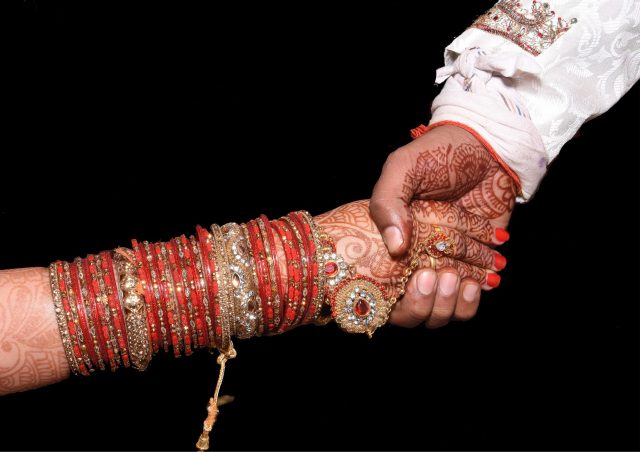
Arranged marriages continue to play a significant role in many cultures, embodying the ethos of family unity and shared values. These unions, typically facilitated by older family members, usually their parents, are based on a multitude of factors, including family background and social standing.
When arranged marriages work, it's often because they balance family influence with the individual's right to autonomous marriage decisions. Crucial to this balance is ensuring the full and free consent of both parties, particularly young women who might be more vulnerable to societal and familial pressures.
Free consent, respected and upheld, fosters an environment where arranged marriages can thrive and adapt to modern expectations of personal autonomy and mutual compatibility.
In the context of an arranged marriage system, a young woman and her prospective partner might not have the traditional romantic relationship typically seen before marriage in Western cultures.
However, as a future daughter-in-law, her relationship with her partner and respective families often becomes a cornerstone of the union, reflecting shared values and long-term compatibility.
It's important to differentiate between the arranged marriage system, which when carried out respectfully can lead to harmonious unions and forced marriages, which deny individuals their fundamental rights to choice and consent.
A forced marriage, unlike many arranged marriages, is not a cultural tradition but a human rights violation that should be addressed by societies worldwide
Balancing Tradition and Modernity

As societies evolve, so too do practices like an arranged marriages. This traditional matchmaking practice is continually adapting to accommodate modern values and expectations, creating a blend of traditional and contemporary elements.
Today, we observe a trend towards more ‘semi-arranged' marriages, where families initiate the match, but the final decision rests with the individuals involved.
In these settings, elements of arranged marriages, such as family involvement and consideration of broader compatibility criteria, can combine well with more modern practices like longer courtship periods, open communication, and personal choice. This ensures both the preservation of cultural heritage and the respect for individual autonomy and preferences.
It's also crucial to note the need for flexibility within arranged marriage practices, respecting variations in individual comfort levels, preferences, and cultural expectations. Understanding that each individual, each couple, is unique and requires a personalized approach can help create a more balanced and inclusive practice.
RECOMMENDED DATING SITE | REVIEW | VISIT |
|---|---|---|
 | Top dating site with over 16 million active members. Free to Try! |  |
Takeaway
In this article, we've explored the pros and cons of arranged marriages. On the positive side, we highlighted the potential for increased compatibility due to comprehensive background checks, reduced pressure on individuals with shared decision-making, and the role of family support in creating a nurturing environment.
On the flip side, we discussed challenges like the potential absence of pre-marital emotional bonding, limitations on personal freedom and choice, and societal and familial pressures that may accompany arranged marriages.
The comparison with love marriages showed that neither type is inherently superior; both have their unique benefits and challenges, and success in either context depends on the individuals' commitment and efforts to nurture their relationship.
In the face of a rapidly evolving global society, it's apparent that arranged marriages, like any other societal practice, are adapting to modern values and expectations. Whether they remain relevant and sustainable in the contemporary world largely depends on how they can continue to balance tradition and modernity, prioritizing respect for individual autonomy and personal preferences alongside the preservation of cultural heritage.
In conclusion, arranged marriages, when implemented with respect for individual choice and emotional compatibility, can indeed form a successful marital framework. But, as with all relationships, the most critical ingredients remain mutual understanding, respect, love, and the willingness to work through challenges together.
FAQs
Do arrange marriages result in happier or more successful relationships than love marriages?
This question is challenging to answer definitively because the success or happiness of a marriage depends on many personal and subjective factors. Some studies suggest that arranged marriages may have a higher stability rate and comparable happiness levels over time.
Are individuals in arranged marriages given the opportunity to reject potential matches?
The level of individual choice in arranged marriages can vary significantly across different cultures and families. In some cultures, individuals have a considerable say in the decision, including the right to reject potential matches. This is becoming more common in what is often referred to as ‘semi-arranged' marriages.
Are arranged marriages only prevalent in certain religions or cultures?
While arranged marriages are more common in certain cultures and religions, such as in South Asian, Middle Eastern, and some African communities, they are not exclusive to these groups.
The practice has been observed globally in various forms and across different religious and cultural backgrounds. Also, it's worth noting that the prevalence and practice of arranged marriages within any given culture can vary widely and are influenced by factors like education, socio-economic status, and exposure to different cultural norms.
Peter Vanderbuild
Trevor Fields is a tech-savvy content strategist and freelance reviewer with a passion for everything digital—from smart gadgets to productivity hacks. He has a background in UX design and digital marketing, which makes him especially tuned in to what users really care about. Trevor writes in a conversational, friendly style that makes even the most complicated tech feel manageable. He believes technology should enhance our lives, not complicate them, and he’s always on the hunt for tools that simplify work and amplify creativity. Trevor contributes to various online tech platforms and co-hosts a casual podcast for solopreneurs navigating digital life. Off-duty, you’ll find him cycling, tinkering with app builds, or traveling with a minimalist backpack. His favorite writing challenge? Making complicated stuff stupid simple.




